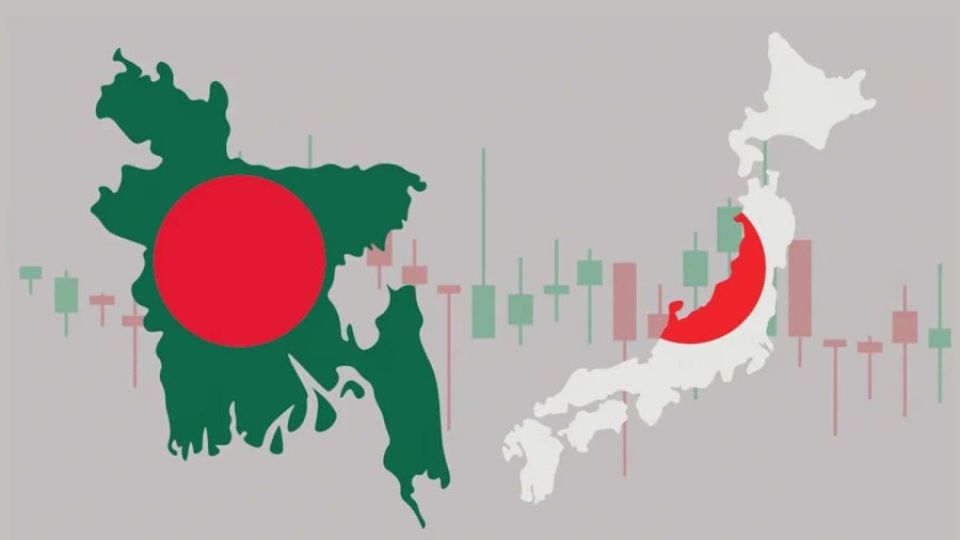April 20, 2023
DHAKA – Being one of the most open and trade-oriented economies in South Asia, Bangladesh is slowly becoming a promising and lucrative business destination in the region. Japan, Bangladesh’s long-standing development partner, is eager to strengthen the bilateral connections due to the latter’s 170-million-strong consumer base, an expanding middle class, improved purchasing power, local demands, easily accessible labour, and economic development. Due to worries about overdependence and supply chain disruptions in the wake of the pandemic and the Russia-Ukraine war, Bangladesh can be an alluring alternative location for Japanese businesses that are looking to pivot away from China. The East Asian country is making significant investments in Bangladesh. As a result, Bangladesh’s success in the near future may be greatly influenced by its economic relations with Japan.
The two countries have had friendly ties ever since Tokyo recognised the People’s Republic of Bangladesh on February 10, 1972. Japan has generously contributed to Bangladesh through Official Development Assistance (ODA) since 1972, and has advanced to become the country’s leading bilateral donor. Bangladesh receives the most ODA from Japan, according to Ito Naoki, former Japanese ambassador to the country. In 2014, Bangladesh and Japan began a comprehensive partnership, which resulted in an increase in financial assistance.
Japan provided Bangladesh with $2.63 billion in aid, more than any other country, for the 2020-21 fiscal year. Since Bangladesh’s independence, Japan has made a contribution of $24.72 billion, roughly split between grants and loans. Japan provides assistance to Bangladesh in a number of fields, including energy production, social and economic development, and the development of both real and intangible infrastructure.
Investment links between Bangladesh and Japan are expanding in sectors like gas and coal, the blue economy, health, and human resource development. Japanese businesses are considering Bangladesh as a potential new investment location. Only 82 Japanese companies had stakes in Bangladesh 10 years ago. Over the past decade, that number has steadily increased. Last year, there were 300 Japanese businesses operating in Bangladesh, up from 278 in 2018, 260 in 2017, and 245 in 2016. Bangladesh and Japan announced a financial deal on August 12, 2020, which included Japanese investments in seven Bangladeshi megaprojects. One may also argue that these programmes may help Bangladesh become an upper-middle-income country.
The northeast part of India has seen significant investment from Japan. In actuality, the only country that has been allowed to make significant investments in northeast India because of the area’s strategic location is Japan. Northeast India is landlocked by Bangladesh, Bhutan, China, and Myanmar. All of these factors played a role in the development of the “free and open Indo-Pacific” idea, one of Japan’s most important foreign policy initiatives. Although former Prime Minister Shinzo Abe initially proposed this idea, it has been continued by the succeeding administrations. Japan has been working to uphold a rules-based order in the Indo-Pacific region as part of this.
Prime Minister Fumio Kishida, while announcing Japan’s new “free and open Indo-Pacific” strategy, said northeast India still has unrealised economic potential. In order to assist the growth of the entire region, Japan wants to construct the Bengal-Northeast India industrial value chain concept in partnership with Bangladesh and India, treating Bangladesh and the other South Asian countries as a single economic zone. An “Act East” conference was previously held by India and Japan to investigate business opportunities in Bangladesh and elsewhere. The plan calls for it to be a component of Tokyo’s larger Bay of Bengal and Northeast India infrastructure development plans, with a focus on multilayer connectivity. Japan has unveiled its new vision for the Free and Open Indo-Pacific (FOIP), which calls for the integrated development of Bangladesh and northeast India as parts of a wider Bay of Bengal community.
Bangladesh’s primary Asian export market is Japan. Although Bangladesh’s exports to Japan have nearly doubled over the past 10 years, there is still a lot of unrealised trade potential in the country. According to a 2014 Pew Research survey, 71 percent of Bangladeshis support Japan, making it one of Asia’s most pro-Japanese nations. In favour of Japan, Bangladesh withdrew its candidacy for non-permanent membership in the UN Security Council (UNSC) in 2014.
Bangladesh plays a significant role in Japan’s strategic and diplomatic agenda in South Asia. But Bangladesh must enhance its economic climate, for instance by implementing fast-track projects, in order to become an investment-friendly hub for Japan. Additionally, the transfer of technological know-how will be crucial for Bangladesh, who will profit for years to come if it can advance technologically through its partnership with Japan. Japan ought to permit Bangladeshi goods to be imported duty-free to establish a level playing field. The removal of current barriers to their bilateral interactions, such as protracted customs clearance processes, double taxation, and foreign exchange concerns, requires coordinated efforts from both sides.
Aside from economic considerations, improving ties with Dhaka will give Tokyo the opportunity to reconsider its South Asian power structure beyond New Delhi. On the other hand, a close relationship with Japan will help Bangladesh realise its full economic potential, face challenges that may appear after it becomes a developing country in 2026, and diversify its diplomatic relations with major powers. By looking for new avenues for collaboration in the development of vaccines, healthcare, the blue economy, high-tech industries, shipbuilding, automobile manufacture, and other fields, both parties may enhance their bonds.
The innovative leadership of Prime Minister Sheikh Hasina has helped Bangladesh become a development model. A crucial component of her outstanding leadership is how well she and her government handled interactions with local communities and other international organisations. We anticipate that the prime minister’s upcoming Japan visit, scheduled for April 25-28, will create new economic prospects for both countries.
Dr Sabera Chowdhury is senior researcher at South Asian Studies in the University of Toronto, Canada.


